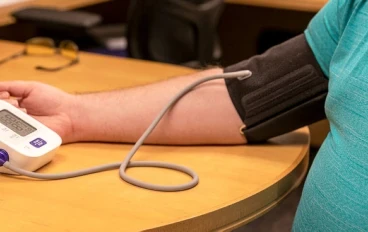
"How to Take Care of the Health of Older Adults"
Taking care of the health of older adults requires acomprehensive approach that addresses physical, mental, and social aspects. Here are some key tips
1. Proper Nutrition
Follow a balanced diet rich in fruits, vegetables, whole grains, lean proteins, and low-fat dairy products
Limit the intake of salt, sugar, and saturated fats.
Drink plenty of water daily.
Consult a doctor or nutritionist to determine specific dietary needs.
2. Physical Activity
Engage in regular light exercises such as walking, stretching, or yoga.
Choose physical activities suitable for their health condition and consult a doctor before starting any fitness program.
3. Regular Medical Check-Ups
Schedule routine medical check-ups to monitor chronic conditions such as diabetes and high blood pressure.
Ensure medications are taken as prescribed.
Get vaccinated against illnesses like flu and pneumonia.
4. Mental Health
Encourage social activities, such as family gatherings or community events
Promote hobbies that bring joy, such as reading or gardening.
Consult a mental health professional when needed, especially if feelings of isolation or depression arise
5. Quality Sleep
Maintain a consistent sleep and wake schedule.
Create a comfortable and quiet sleep environment.
Seek medical advice if there are issues like insomnia.
6. Preventing Accidents
Ensure the home is safe by removing obstacles that could cause falls.
Use mobility aids such as canes or walkers if necessary.
7. Social and Family Support
Dedicate time for interaction with family and friends.
Provide a supportive environment that encourages independence while offering help when needed.
8. Avoiding Harmful Habits
Avoid smoking and alcohol consumption.
Raise awareness about the risks of these habitsCaring for the health of older adults is essential for maintaining their overall well-being. Regular health check-ups are necessary to monitor vital health markers, while a balanced diet ensures they receive the necessary nutrients. Physical activity helps prevent chronic diseases and maintains mobility. Mental health is also crucial, so staying socially engaged and mentally active is key to preventing cognitive decline. Medication management and fall prevention are important to avoid accidents and interactions. Ensuring good sleep, providing emotional support, and making future healthcare plans will further enhance their quality of life, helping older adults live healthy, active, and fulfilling lives.





























